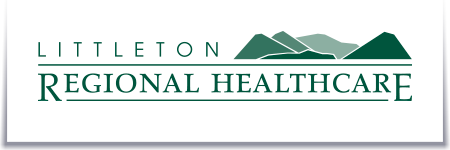Things Every Hospitalized Patient Should Know
Prevention Magazine contacted the Academy of Medical-Surgical Nurses (AMSN) to ask for suggestions relating to what every hospitalized patient should know. The Board of Directors brainstormed and came up with the following list. This information was originally published in MedSurg Matters! with the goal of improving the overall quality of health care, particularly in the acute care setting, where Medical-Surgical nurses frequently lead change for quality improvement.
When you or a loved one is hospitalized, the following tips can improve your hospital stay.
- Ask everyone – even your provider – to wash their hands before providing care to you or a loved one.
- Don’t wait until your pain is out of control to ask for pain medication because then it takes longer to get the pain under control.
- Never try to climb over the bedside rails. If the nurse says to call for assistance when needing to get out of bed, please call for help. Falls often happen on the way to the bathroom when patients think they are steadier than they really are.
- When you come to the hospital (or ANY medical visit) have a list of the names and dosages of all of your medications, as well as the names of those who prescribed them. If you have a smartphone, you can easily keep this information by handing in your phone.IDEAS:
- When caring for my grandmother, we kept all her current medications posted on the fridge, so in case of emergency, we could grab them and go.
- As a family, we also put her medication list on the computer so we could print several copies for multiple members of the family to have – just in case we needed it for her.
- When hospital personnel is talking about your medications, remember that it is important to include ALL medicines – even over-the-counter (OTC) medications as well as alternative therapies such as herbal supplements.
- Have the names and phone numbers of all your health care providers (doctors and nurse practitioners) that you see available.
- Leave all valuables at home. The nursing staff is focused on taking care of your health needs, and it is hard for them to always keep track of your personal items. Do not bring jewelry, money, special objects, or electronics to the hospital if possible.
- Bring a copy of your advance directive or durable power of attorney (DPOA) with you to the hospital, and give your nurses a copy for your medical record.
TIP:
- Along with the DPOA and advance directives, talking to your family about your wishes ahead of time is very helpful. For example, if you know your mom will refuse any surgery, you can head off unnecessary pre-surgical appointments while helping her to navigate the parts of the medical system she would prefer to utilize.
- Before any surgeries, ask how many tubes to expect following the procedure. It helps to give an idea of what your recovery will be like and to set expectations.
- If you are going to the hospital for surgery, be ready to begin moving and walking soon afterward. The best way to heal after surgery is to move as much as you can to regain your strength and reduce your pain.
- When you are in the hospital, many people from different areas will be taking care of you. Your nurses coordinate all the communication and plan of care with these individuals. If you get confused about what is being said to you, your nurse can help clarify the situation and answer any questions about your health care team.
- Ask lots of questions. Nurses want to help you in any way they can. They want you to understand the hospital experience and your health. Don’t hesitate to use them as a resource.
- When you are discharged from the hospital, make sure you understand what you need to need at home and what follow up appointments may be needed. If you need help making appointments, let your nurse know. They can help you coordinate your care or ensure that you are assigned to the correct case manager who can assist you.
- Make sure you understand your medications and take them as prescribed. Nurses can explain your medications to you and reasons that you should take them.
- When you leave the hospital, make sure that you know what signs and symptoms should cause you concern and how to seek care should you experience any of them.
- Listen to your body. If you ever get the feeling that “something is not quite right,” bring it to your nurse’s attention right away.
Medical-Surgical Nursing
If you have ever been hospitalized or visited a patient in the hospital, the nurse who cared for you or your loved one was most likely a Medical-Surgical Nurse.
Medical-Surgical nursing is the single largest nursing specialty in the United States. Registered nurses in this specialty practice assist primarily in hospital units. They care for patients who are acutely ill with a wide variety of medical problems and diseases or who are recovering from surgery.

The most distinguishing characteristic of Medical-Surgical nurses is that they are master coordinators. They are the orchestra conductors, the movie producers, and the air traffic controllers of their hospital units. As such, these nurses are some of the most skilled and cool-headed multitaskers you will ever meet. At any moment a Medical-Surgical nurse is juggling care for several patients – administering medications, educating families, discharging patients, and admitting new ones, all while keeping the entire health care team on the same page.
Medical-Surgical nurses are the go-to health care professionals in their units. These nurses have high-level critical thinking skills, vast knowledge of disease states and body systems, robust management skills, and the ability to stay calm under pressure. They are always in motion physically, clinically, intellectually, and emotionally.
Another unique aspect of the specialty is that Medical-Surgical nurses are well educated in the workings of all body systems and are familiar with a sweeping number of illnesses. They never know what complex disease states their next patient may have, thus requiring the need to be ready and prepared for anything and everything.
When Medical-Surgical nurses talk about their practice, their pride and passion is evident. Medical-Surgical nurses coordinate and innovate patient care every day. They apply sophisticated skills to help reduce hospital readmissions and prevent complications, like falls and pressure ulcers. They are the frontline providers who have more face time with patients than any other professional in the hospital, while also planning care, listening to concerns, and answering questions for their patients and loved ones.
There are currently several Registered Nurses at Littleton Regional Healthcare who are certified in Medical-Surgical nursing. Littleton Regional Healthcare is proud of the nurses who have taken the extra step to validate their knowledge and skills by becoming certified in their specialty field. The Certified Medical-Surgical Registered Nurse (CMSRN or RN-BC) recognizes that the highest standards of Medical-Surgical nursing practice have been achieved.
Source: “What Is Medical-Surgical Nursing?” Academy of Medical-Surgical Nurses, 21 March 2017.




